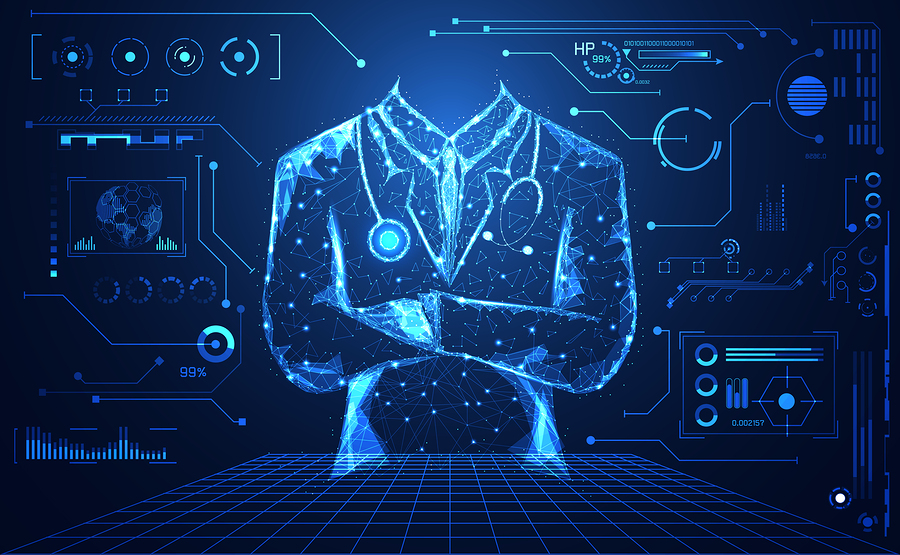Wills Smart AI (Artificial Intelligence) Smart Medical
Artificial intelligence simplifies the lives of patients, doctors and hospital administrators by performing tasks that are typically done by humans, but in less time and at a fraction of the cost. One of the world’s highest-growth industries, the AI sector was valued at about $600 million in 2014 and is projected to reach $150 billion by 2026.
AI has countless applications in healthcare. Whether it’s being used to discover links between genetic codes, to power surgical robots or even to maximize hospital efficiency, AI has been a boon to the healthcare industry
Artificial intelligence simplifies the lives of patients, doctors and hospital administrators by performing tasks that are typically done by humans, but in less time and at a fraction of the cost. One of the world’s highest-growth industries, the AI sector was valued at about $600 million in 2014 and is projected to reach $150 billion by 2026.
AI has countless applications in healthcare. Whether it’s being used to discover links between genetic codes, to power surgical robots or even to maximize hospital efficiency, AI has been a boon to the healthcare industry
Integrating Smarter Solutions to Provide Better Healthcare Experience
Artificial intelligence and machine learning
Wills Smart uses the most advanced intelligence on the market to constantly evolve its accuracy and improve healthcare outcomes.
Intuitive interface
Our groundbreaking user interface makes medical information and symptoms easier than ever to capture and record accurately. The Wills Smart UI has been designed in partnership with Pharos to be simple for everyone to use, regardless of ability, age, or health condition.
Highest quality standards
Wills Smart is driven by a mission to improve health care around the world. Wills Smart optimizes the highest quality triage standards (NTS) and adheres to the strictest medical and security standards.
Sustainable health care for all
Wills Smart was created with the vision to support sustainable, affordable healthcare for all. It is the only app of its kind designed to meet the needs of patients, physicians, and clinics.

Wills Smart AI Medical
Artificial intelligence (AI) is one of the current megatrends emerging from the broader digitization of society and the economy. So far, these “smart” AI technologies have mainly attracted attention in the e-business, automotive, and consumer goods sectors.
The rapidly growing accessibility of healthcare medical data and also the advances of big data diagnostic techniques has completed the potential of the current successful uses of artificial intelligence (AI) in healthcare system.
Artificial intelligence (AI) has the potential of detecting significant interactions in a dataset and also it is widely used in several clinical conditions to expect the results, treat, and diagnose. Artificial intelligence (AI) is being used for a variety of healthcare and research purposes, including detection of disease, management of chronic conditions, delivery of health services, and drug discovery.

10 Ways AI Can Impact Healthcare
- Patients who feel a little unwell or think they need medical advice will dial into a telehealth service and talk to a nurse. Data on their condition and symptoms may be uploaded in real time from a smart phone or smart sensors, and an artificially intelligent system will suggest next steps to the nurse on the line. And by the way, smartphones will be used to regularly send pictures or videos which a computer will read and recommend how to proceed.
- Patients who feel sufficiently unwell will not go to a hospital urgent care department and instead will mostly go to a conveniently located small clinic, probably in a local mall or chain pharmacy. There the patient will be seen by a nurse practitioner who will be able to take into account a patient’s entire medical history by pulling up a universally accessible, privacy protected, electronic health record, or EHR.
- Patients with chronic conditions will be cared for at home by visiting nurses and doctors (matched by smart platforms and “Uber”-type technology) who can then call in as frequently as necessary either in person or via telehealth means. People who are not ambulatory at all will also be able to be watched over by AI robots that also provide some basic care.
- Where a hospital is still needed, for say major surgery, these will be making extensive use of technology, much of which will be available in every patient room (or portably deliverable to it) like a mini ICU. AI will feature significantly in these rooms and will be blended with human resources.
- In-Patients (in hospitals, surgery centers, clinics, skilled nursing centers, hospices etc.) will have multiple screens around them which can deliver tailored education by AI means and be responsive to patient requests for feedback (by just using their voice as a command).
- Human medical staffing ratios will be adjusted constantly according to the individual patient’s need as determined by AI risk-monitoring and treatment algorithms and by adjusting according to a continually updated electronic health record.
- Most orders and notes from doctors will be entered into the EHR through natural language voice recognition software. Each patient will control his or her own EHR, a digital compendium of clinician-generated notes and data with patient-generated information and preferences (all of which will be simply analyzed, charted and displayed as a patient wishes).
- Patient Alerts will be calibrated to clearly distinguish life-threatening issues and problems from minor conditions or ignorable symptoms.
- Doctor’s efforts will be greatly assisted, especially when engaged in differential diagnosis and evidence-based treatment and precision medicine practice by cognitive computing systems like IBM’s Watson.
- Artificial intelligence applied to cloud-based “Big Data” will assist clinicians by comparing and contrasting individual patient’s characteristics with other patients in the database with similar conditions in order to find the best possible diagnoses and solutions.
Get In Touch
Don't hesitate to contact us
+018885551
Suite 224, 2nd Floor Nawa Complex, Cadastral Zone B09 Ahmadu Bello way, Kado Abuja, FCT, Nigeria.